Full Slate of Southeast CASC FY19 Actionable Science Projects Underway
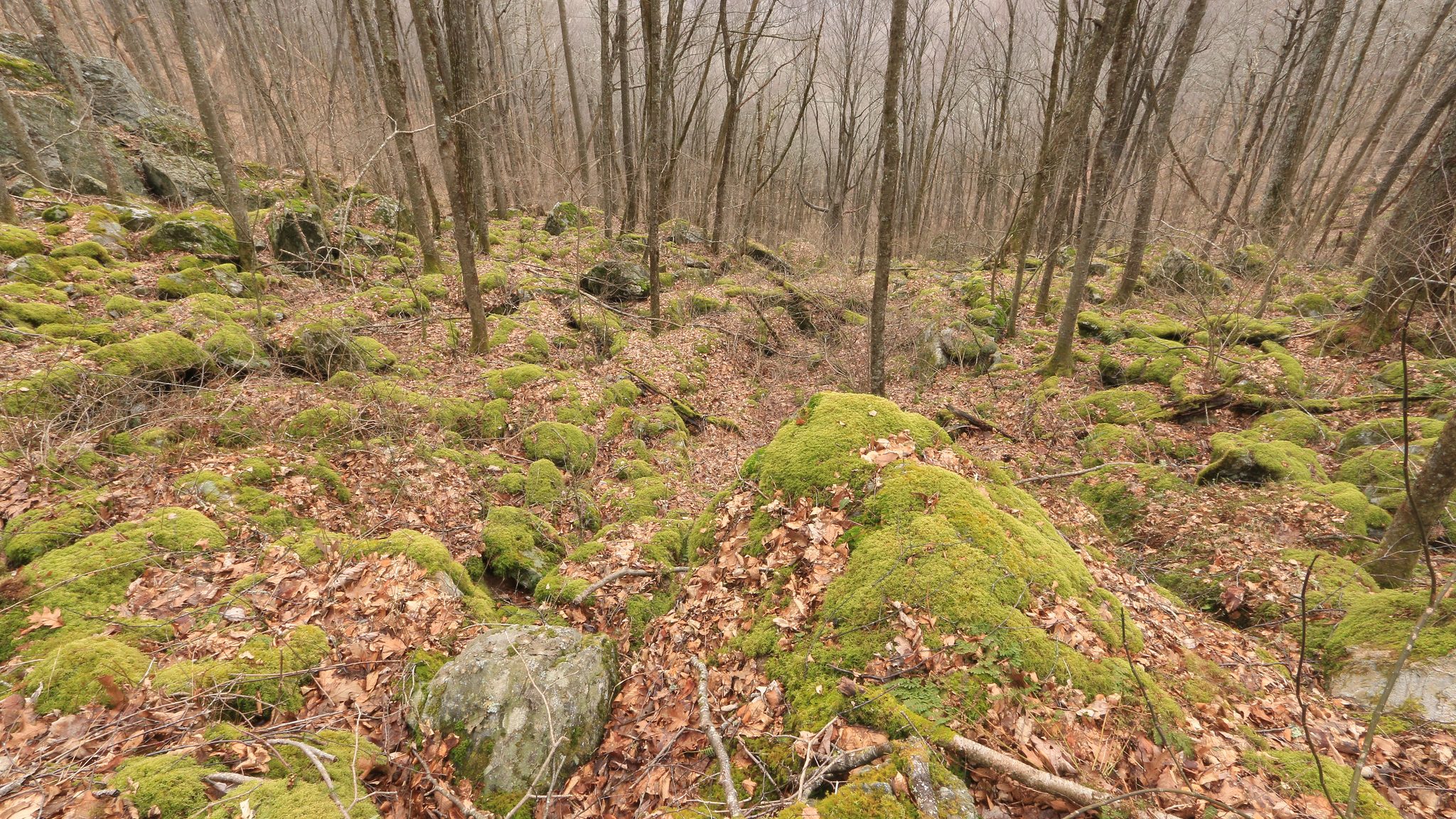
Research funded by the Southeast Climate Adaptation Science Center encompasses a range of science activities that contribute to understanding the exposure and impacts of global change on resources that matter to our partners and to framing decisions about adaptation strategies, emphasizing principles of co-produced actionable science. Science funding decisions are guided by annual science priorities developed with input from key federal, state, and tribal partners in the Southeast.
Consultation with these partners identified three science themes supportive of Department of the Interior Secretarial Priorities:
- Exposure: Improve partner understanding of what climate and land use change processes and associated biophysical stressors will look like on the land and water they manage.
- Impacts: Improve partner understanding of ecosystem, habitat, and species impacts of climate and land use change, as well as the understanding of how these changes affect resources of specific concern to resource managers.
- Adaptation: Increase partner understanding of, and access to, practical guidance for framing and making smart climate and land use change adaptation decisions.
We are pleased that five projects have been initiated with FY19 science funding, implementing science across these themes. Short descriptions of FY19 projects are provided below.
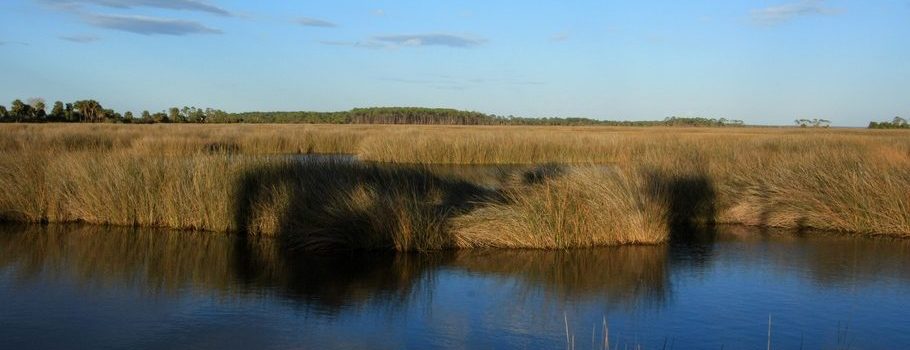
Facilitating Accurate and Effective Application of Coastal Marsh Models
Principal Investigator: Sarah Spiegler, NC Sea Grant, NC State University
Start Date: May 2020
Proposed Project Completion: May 2021
A retrospective analysis comparing model predictions against historical marsh conditions with a known elevation data is the only approach to elucidate strengths and areas of improvement in the models and has not been performed to date. This large effort will be accomplished in distinct, achievable phases. Phase 1, proposed here, will convene a workshop among top marsh modelers to 1) inventory available data sources required for marsh models, 2) scope an approach to an ‘apples-to-apples’ comparison across the range of coastal marsh system models, aimed at exploring differences in their prediction of marsh conditions under climate change, and 3) deliver to managers guidance on how best to utilize the existing marsh tools to inform land management decisions.
To view a full project summary click here.
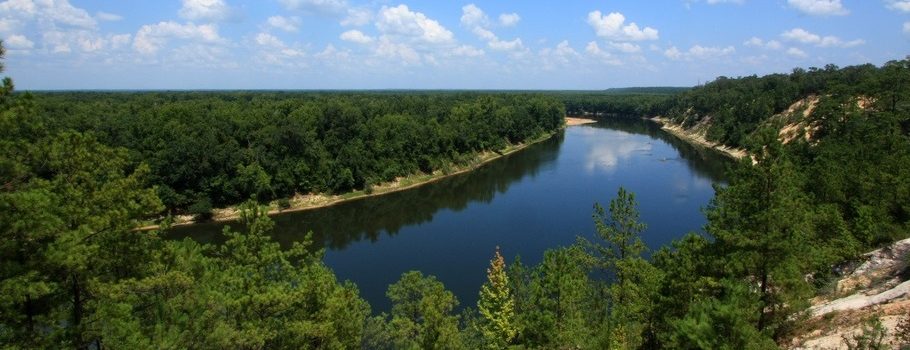
Analysis and Visualization of Climate Information to Support USFWS Species Status Assessments
Principal Investigator: Kathie Dello, State Climate Office of North Carolina, North Carolina State University
Start Date: October 2019
Proposed Project Completion: September 2021
In partnership with scientists from the USFWS, this project will develop and test data products that will assist USFWS biologists in their efforts to incorporate climate information into SSAs, including how the climate factors and thresholds that most affect species vary year-to-year, how they are expected to change in the future, and the uncertainties associated with those changes. Researchers will also develop and test the efficacy of using a web-based collection of maps and data layers for interpreting climate vulnerability of wildlife and their habitats. Each map product will focus on the most relevant climate and ecology metrics that predict species viability for a location, and include explanatory and interpretive materials. Regular input from USFWS scientists will ensure that the information is accessible, useful, and usable.
To view a full project summary click here.
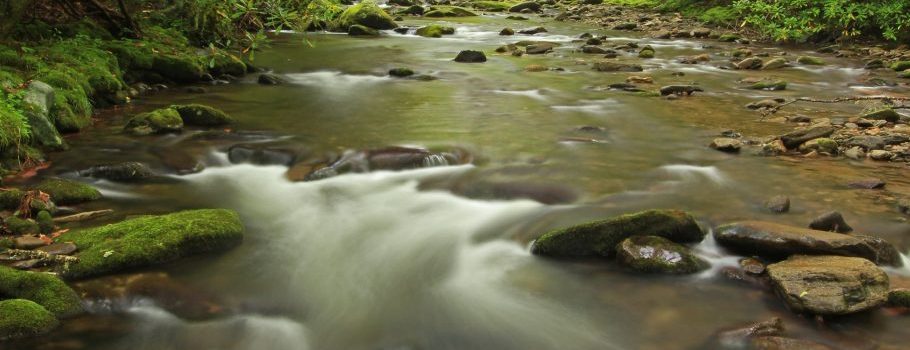
Impacts of Sea Level Rise and Associated Salinity Changes on At-risk Native Freshwater Mussels and Their Habitats in Atlantic Coastal Rivers
Principal Investigators: Greg Cope, NC State University; Tom Kwak, USGS NC Cooperative Fish and Wildlife Research Unit
Start Date: January 2020
Proposed Project Completion: December 2021
The objectives of this study are to assess the vulnerability of the Tidewater Mucket (Leptodea ochracea), an imperiled freshwater mussel species that resides in lower Atlantic Slope coastal drainages to salinity by conducting standard sensitivity tests with early life stages (e.g., larvae, juveniles) of the mussel under controlled laboratory conditions; to determine the potential effects of natural riverine salinity gradients on adult mussels by conducting a reciprocal transplant experiment with salinity adapted and non-salinity adapted mussels; and to develop a risk-based scenario of mussel salinity tolerances in existing occupied habitats incorporating predictions in sea level rise and projected salinity ranges.
To view a full project summary click here.
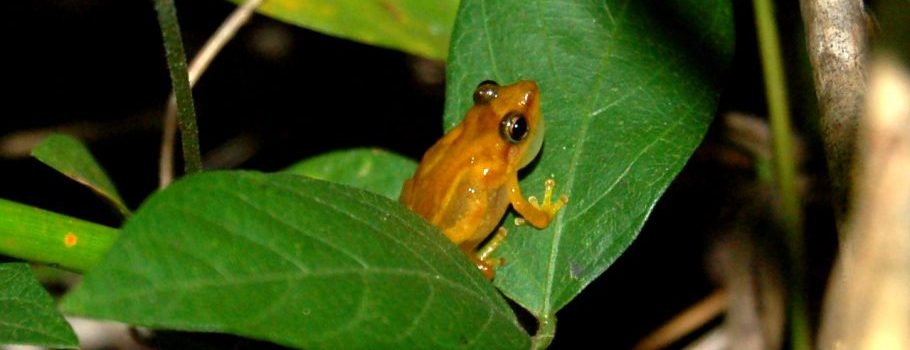
Strategic Habitat Conservation and Adaptive Strategies for the Conservation of Coqui Frogs in Puerto Rico
Principal Investigator: Jaime Collazo, USGS North Carolina Cooperative Fish and Wildlife Research Unit
Start Date: June 2019
Proposed Project Completion: June 2022
This project is Phase II of Climate Change Implications for the Conservation of Amphibians in Tropical Environments. For this next research stage, this project will: (1) characterize the ability of the three representative species, plus the endangered E. juanriveroi, to cope with environmental stresses using a combination of laboratory and field experiments; (2) map the genetic structure of these species to learn about connections between different populations and identify centers of genetic diversity; and (3) assist agencies in the development of conservation strategies centered on two potential adaptation actions: relocating species to new habitats (i.e. translocations) and identifying habitats that could potentially be resilient to climate change.
To view a full project summary click here.
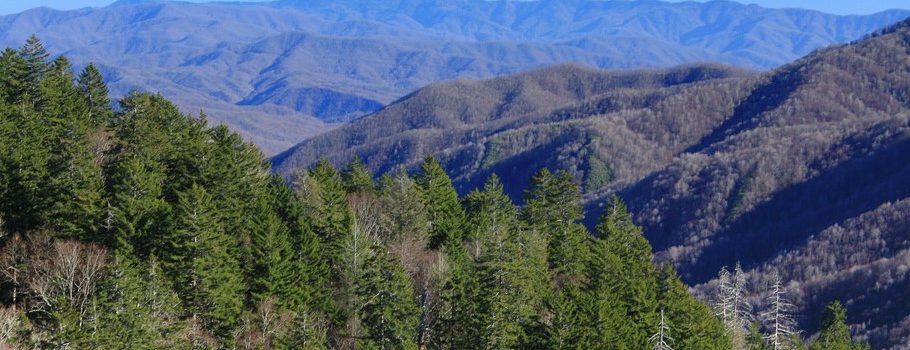
Best Practices for Project Design: Effectively Addressing Natural Resource Management Needs
Principal Investigator: Paul R. Armsworth, University of Tennessee – Knoxville
Start Date: May 2020
Proposed Project Completion: April 2022
The importance of evaluation for improving the efficacy of research programs is increasingly recognized. Previous evaluation studies of actionable science for natural resource management focused on qualitative approaches that are difficult to scale. This project will emphasize quantitative approaches suitable for evaluating larger numbers of projects. Assessment will be based on two criteria: how useful project results are for natural resource managers, and to what degree they advance scientific understanding. This evaluation approach will be applied to projects funded by the SE CASC in Phase 1, first collating available information from documentary sources and also supplementing this with a primary survey of SE CASC partners.
To view a full project summary click here.
- Categories:
